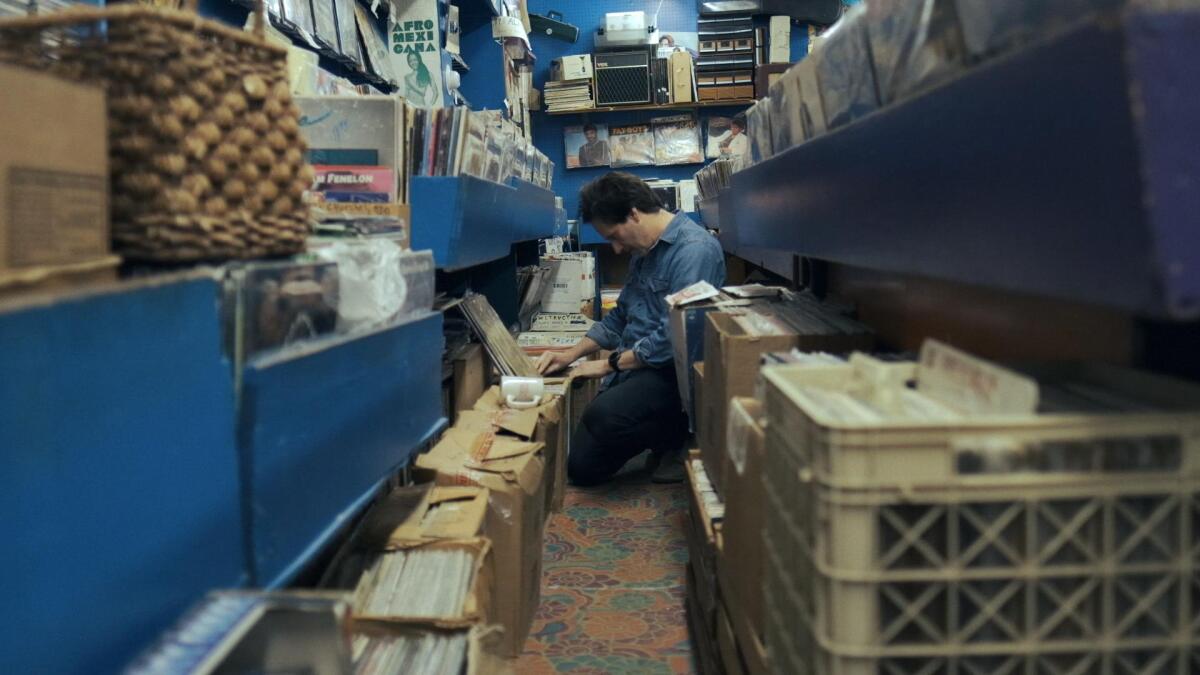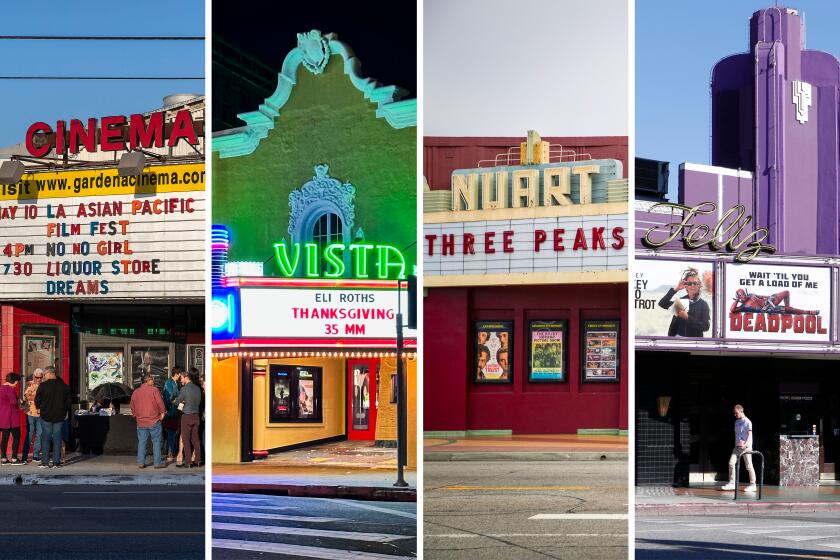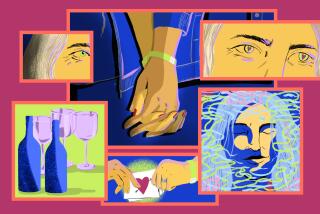Review: In ‘Flipside,’ the untold stories of a wanna-be documentarian coalesce into wisdom

Midlifers, be forewarned as Chris Wilcha’s “Flipside” amiably rolls along: Before this essayistic, personal documentary about creativity and compromise even hits its stride, you’ll find yourself in a commiserative funk about whatever grand dream of artistic fulfillment you set aside to make a living. (Note to self: There’s still time to write that murder-mystery musical.)
“Flipside” is no downer, however, about roads not taken (or even left unpaved). Using the malleable metaphor of a used record store, where love and nostalgia tame that old smackdown between art and commerce to a friendly draw, and the forgotten sits right alongside the accomplished, Wilcha breezily excavates why life can feel so full of promise while also being frustratingly incomplete. He folds in a message of gratitude that tints this sneakily affecting movie with a forgiving sense of color and light.
The shop that is the movie’s namesake is a cramped altar to vinyl located in New Jersey, a treasured hangout from the music-obsessive Wilcha’s youth. And yet, over the years, his efforts to immortalize it on film (to help it stay alive) kept stalling, until it began to symbolize for him a nagging pattern in the filmmaker’s life: so many personally meaningful documentary ideas started and never finished, while the gigs that paid the bills — directing commercials — filled his schedule.
Exacerbating that guilt for Wilcha, who narrates “Flipside” over a snappy assemblage of archival clips, is his proudly anti-consumerist, irony-fueled stance of Generation X. He established his indie bona fides with his Slamdance-winning 2000 debut feature “The Target Shoots First,” which chronicled his first year at a music-biz job.
We’ve mapped out 27 of the best movie theaters in L.A., from the TCL Chinese and the New Beverly to the Alamo Drafthouse and which AMC reigns in Burbank.
A career in advertising was hardly what he expected, even as the 30-second world put food on the family’s table and occasionally allowed for jobs of note. (Wilcha has two Emmys for the short-lived TV version of the acclaimed radio show “This American Life.”) He owes his move to the West Coast to job opportunities from Judd Apatow, who speaks on camera about his own view of sidelined ambition, being a hungry young stand-up who came to realize that writing for others was his true calling.
There are other mini-portraits, too, of creative figures who cross Wilcha’s orbit and speak to the film’s peculiar nexus of achievement, circumstance and self-reflection, including oddball comedian Uncle Floyd, whose fame window was brief but whose cult status inspired a David Bowie song; TV impresario David Milch, plagued by demons and Alzheimer’s disease but driven by generosity; and god-tier jazz photographer Herman Leonard. The clips of Leonard, who speaks eloquently of his art form’s reliance on patience for the right moment, are from — what else? — a proposed film about him that Wilcha never completed.
Of all his shelved hard drives, however, Wilcha’s movie about the record store felt like the one that got away. We see him revisit the store and its crusty, defiantly hype-challenged owner, Dan, and learn that it’s become even harder for it to survive since the opening of a newer, shinier, Internet-savvy used-LP shop around the corner. As Wilcha renews his commitment to his abandoned film, he muses whether becoming a marketing-savvy sellout might also be what saves a beloved bastion of his youth.
He’s also smart enough to know that whether Flipside stays in business isn’t the real story but, rather, how an opportunity in life that feels like an A side might become a B side, and vice versa. It’s all music, Wilcha’s sweetly philosophical movie seems to be saying — and being present enough to listen.
'Flipside'
Not rated
Running time: 1 hour, 35 minutes
Playing: In limited release Friday, June 7
More to Read
Only good movies
Get the Indie Focus newsletter, Mark Olsen's weekly guide to the world of cinema.
You may occasionally receive promotional content from the Los Angeles Times.











